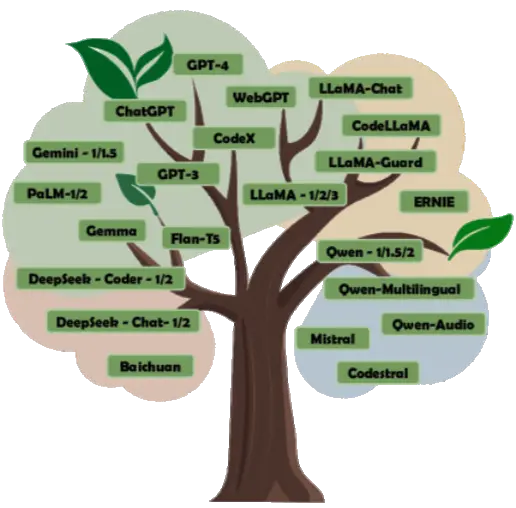
Text2SQL Leaderboard
❖ Text-to-SQL (or Text2SQL), as the name implies, is to convert text into SQL. A more academic definition is to convert natural language problems in the database field into structured query languages that can be executed in relational databases. Therefore, Text-to-SQL can also be abbreviated as NL2SQL. Input: natural language questions, such as Query the relevant information of the table t_user, and the results are sorted in descending order by id. Output: SQL, such as SELECT * FROM t_user ORDER BY id DESC.

SGLang v0.2
❖ Through our operational experiences and in-depth research, we’ve continuously enhanced the underlying serving systems for Chatbot Arena, spanning from the high-level multi-model serving framework, FastChat, to the efficient serving engine for LLMs and VLMs, SGLang Runtime (SRT). While existing options like TensorRT-LLM, vLLM, and Hugging Face TGI have their merits, we found them sometimes hard to use, difficult to customize, or lacking in performance. This motivated us to create a serving engine that is not only user-friendly and easily modifiable but also delivers top-tier performance.
FlashAttention-3
❖ Attention, as a core layer of the ubiquitous Transformer architecture, is a bottleneck for large language models and long-context applications. FlashAttention (and FlashAttention-2) pioneered an approach to speed up attention on GPUs by minimizing memory reads/writes, and is now used by most libraries to accelerate Transformer training and inference. This has contributed to a massive increase in LLM context length in the last two years, from 2-4K (GPT-3, OPT) to 128K (GPT-4), or even 1M (Llama 3).

Awesome LLM
❖ Large Language Models (LLMs) have taken the Whole World by storm. Here is a curated list of papers about large language models, especially relating to ChatGPT. It also contains frameworks for LLM training, tools to deploy LLM, courses and tutorials about LLM and all publicly available LLM checkpoints and APIs.
DeepSeek-Coder-V2
❖ We present DeepSeek-Coder-V2, an open-source Mixture-of-Experts (MoE) code language model that achieves performance comparable to GPT4-Turbo in code-specific tasks. Specifically, DeepSeek-Coder-V2 is further pre-trained from an intermediate checkpoint of DeepSeek-V2 with additional 6 trillion tokens. Through this continued pre-training, DeepSeek-Coder-V2 substantially enhances the coding and mathematical reasoning capabilities of DeepSeek-V2, while maintaining comparable performance in general language tasks.
DeepSeek-V2
❖ We introduce DeepSeek-V2, a strong Mixture-of-Experts (MoE) language model characterized by economical training and efficient inference. It comprises 236B total parameters, of which 21B are activated for each token. Compared with DeepSeek 67B, DeepSeek-V2 achieves stronger performance, and meanwhile saves 42.5% of training costs, reduces the KV cache by 93.3%, and boosts the maximum generation throughput to more than 5 times.
DeepSpeed-FastGen Enhancements
❖ DeepSpeed-FastGen is an inference system framework that enables easy, fast, and affordable inference for large language models (LLMs). From general chat models to document summarization, and from autonomous driving to copilots at every layer of the software stack, the demand to deploy and serve these models at scale has skyrocketed. DeepSpeed-FastGen utilizes the Dynamic SplitFuse technique to tackle the unique challenges of serving these applications and offer higher effective throughput than other state-of-the-art systems.

SGLang
❖ Large Language Models (LLMs) are increasingly utilized for complex tasks that require multiple chained generation calls, advanced prompting techniques, control flow, and interaction with external environments. However, there is a notable deficiency in efficient systems for programming and executing these applications. To address this gap, we introduce SGLang, a Structured Generation Language for LLMs. SGLang enhances interactions with LLMs, making them faster and more controllable by co-designing the backend runtime system and the frontend languages.